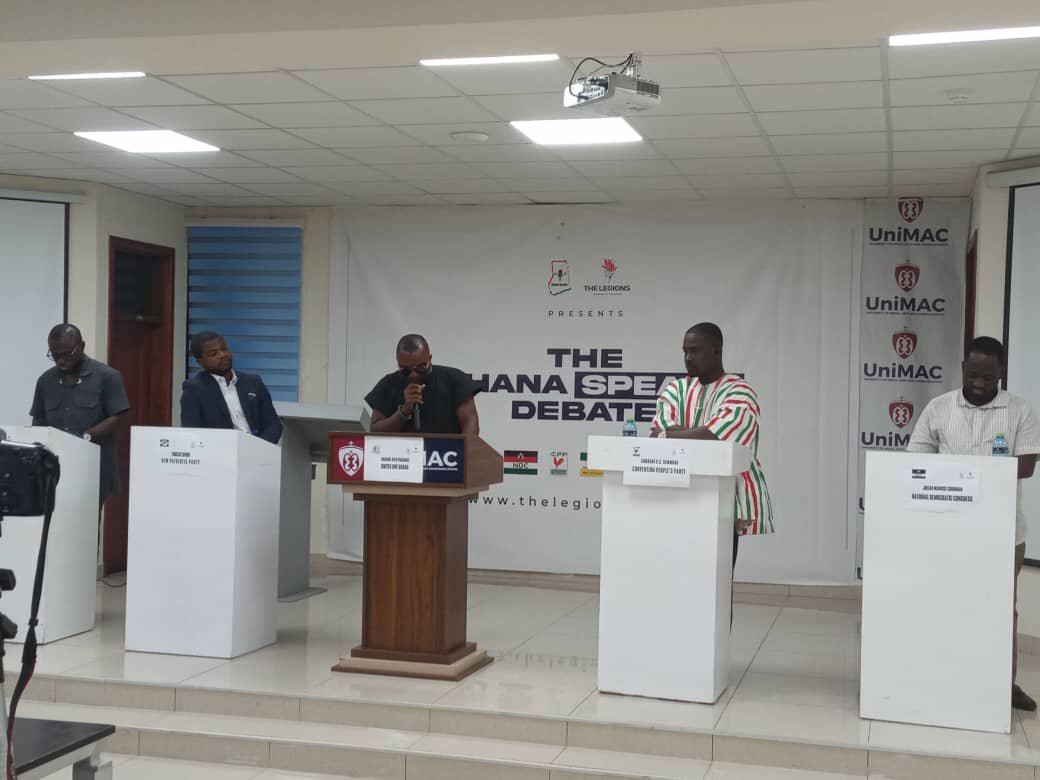
Youth speakers during the debate

The Legions, a non-governmental organization and think tank, has successfully organised the maiden edition of the ‘Ghana Speaks Debate’ at the University of Media, Art and Communication (UniMAC-IJ).
The event, which took place at the University’s auditorium over the weekend, attracted youth speakers from diverse political backgrounds, including prominent parties such as the governing New Patriotic Party (NPP), opposition National Democratic Congress (NDC), Movement for Change, All People’s Party, Convention People’s Party, and United One Ghana.
Focusing on pivotal issues ranging from the economy, health, education, unemployment, to political reforms, the debate provided an invaluable platform for these emerging leaders to articulate their policies and visions for Ghana’s future. With the December polls approaching, the event offered voters a glimpse into the strategies and commitments of potential leaders.

Significance of debate
Speaking in an interview with the Daily Statesman after the debate, Willis Cobby Iddirisu, the Executive Director of Legions, stressed the significance of the ‘Ghana Speaks Debate’ in fostering informed decision-making among the youth.
He emphasised the importance of voting based on factual analysis rather than tribal or parental affiliations, believing that such enlightenment would lead to a more progressive political landscape.
Mr. Iddirisu also disclosed Legions’ ambitious plans to host a debate featuring presidential candidates, providing a comprehensive platform for them to explain their policies directly to the electorate.
Additionally, he announced the imminent release of a youth manifesto, meticulously crafted to address the pressing needs and aspirations of Ghana’s youth, slated to be unveiled within 30 days following the Ghana Speaks Debate.
He, however, indicated that amidst the fervor of electoral discourse, there’s the need for the youth to eschew violence and embrace civility as the nation prepares for the upcoming general elections.
He noted that with the collective efforts of organizations like Legions, together with its executives, and the engagement of Ghana’s vibrant youth populace, the trajectory of Ghana’s political landscape seems poised for positive transformation.





